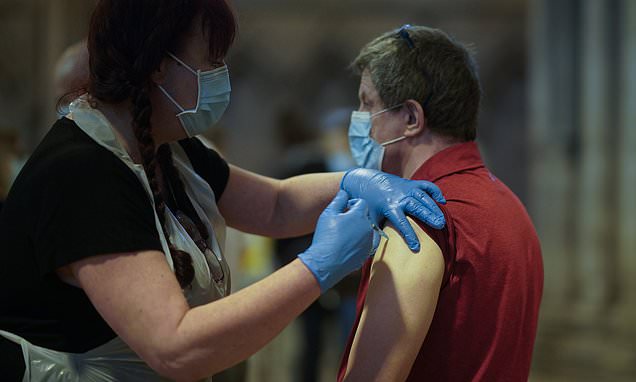It is the case that 'flu cases' are 'way down'.
But as we've seen from reporting on what is and is not a 'Covid-19 case', what is and is not a 'flu case' is also unclear. They never did mass testing for 'flu'. In the past, it was largely down to self-reporting and/or doctors putting 'flu' (and/or related Influenza-like illnesses, 'ILIs', like pneumonia or other respiratory illnesses) down on patients' reports or death certificates. That's why, at the beginning of this madness, we initially said, 'Hang on, the numbers (of reported Covid-19 cases) are actually close to - or even lower than - past (even recent past) numbers of flu cases during the winter season'.
Then we realized that the 'flu baseline' against which everyone was comparing Covid-19 was weak (specifically, unreliable), so we instead looked 'beyond' that to see whether or not overall deaths ('all-cause mortality') increased during the 'Covid-19 pandemic'. They did, slightly, in countries that had the strictest lockdowns, but what that 'signal' in the data means is questionable because the case can be made that the initial 2-month lockdown last spring killed off - a little earlier than they might otherwise have gone ('dry tinder', epidemiologists call it) - a cohort of the elderly/chronically infirm by stupidly reorienting healthcare systems - in the worst possible way, as far as the most vulnerable to Covid-19 were concerned, and other larger cohorts because regular screening and primary healthcare went to hell.
One consequence of that reorientation is that we can't tell to what extent 'flu cases all but disappearing off the face of the Earth' is down to the fact that healthcare systems are under political-administrative orders to 'see only Covid-19', how much of that is due to actual biological factors whereby the SARS-CoV-2 variants are 'occupying the pathways' through which seasonal flu viruses normally enter and interact with their hosts, and how much of that is 'a happy and surprising by-product of successful public health measures' like social distancing.
We think the first explanation most likely accounts for most of the 'disappearance of flu'; it 'disappeared' into the 'Covid column' on Excel spreadsheets because of overwhelming tunnel-vision focus on SARS-CoV-2. Governments, on the other hand, would love for people to believe the latter explanation, which they can of course endlessly leverage to make the case for more lockdowns.
And that is what's chiefly farcical about this situation: if they're keeping everyone under lockdown and/or 'limited social bubbles', they're theoretically keeping Covid-19 herd immunity at bay, and regular seasonal flu herd immunity at bay, worsening the impact of each when things 'return to normal'... Unless, we never return to normal because Big Brother Govt will be there every step of the way to 'save us from suffering' by endlessly putting off the inevitable.
Here's a recent UK Telegraph report warning about 'the flu rebound':
If it's the case that "social distancing measures cut the [Covid] virus to levels not seen for a century," then - by implication - why not maintain such measures indefinitely to also 'prevent the flu from returning'?
In the very same article, further down, it is acknowledged why this was never attempted before The Covid came along:
Flu is ordinarily 'allowed' to circulate because IT'S NECESSARY FOR HUMAN IMMUNITY!
But not Covid-19. No, we must keep people from developing natural immunity to that virus - at the cost of collapsing civilization if necessary.
Clearly, from what I witnessed at work on myself and on others colleagues and from what is reported during informal discussions, everyone was endlessly less sick this winter. Usually during winter their was 2 or 3 waves of illness. Flu or cold or gastroenteritis. This year there was nothing.
I think there is nothing mysterious as habits dramatically changed. Especially in a country a France where I live. Usually we shaked hands or say farewell with a kiss on the cheek every day. Now it's finished, and more than that, everyone wash his hands when arriving at work and do not touch others.
So vectors of contaminations have been greatly diminished. I'm not sure it's good because, in the end, immune system is less used and weakened.
The other point is the competition with virus. Perhaps the coronavirus compete with others virus so others virus are less active. I don't know.
I'm sure the trick to put flu in the coronavirus column is also used, but clearly, there are less infections in a general sense. At least from what I can witness.


